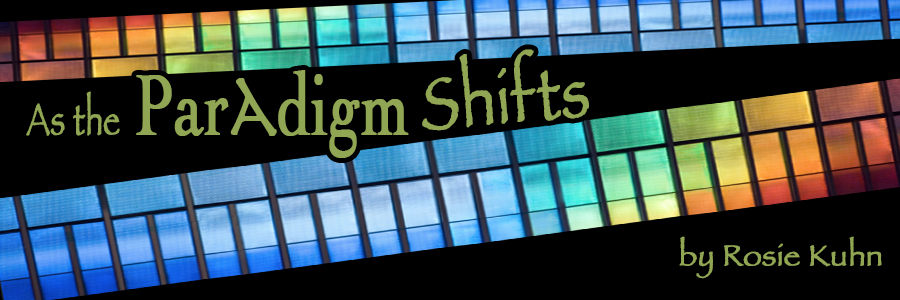||| AS THE PARADIGM SHIFTS by ROSIE KUHN |||
Today, I want to offer you a story that beautifully illustrates the dance between wanting to be special and learning the art of being ordinary.
I spoke about Sarah in my most recent post a couple of weeks ago, about Becoming Nobody Special. Well, since then, in a session, Sarah said something many of us have probably thought or asked: “Rosie, I just really want to know what my life purpose is.”
It was such a sincere moment — but also a loaded one. Underneath her words was a striving: a hope that her purpose might reveal she is extraordinary, talented, valuable, and important. It had a different vibe from our previous session where she shared, “I’m learning to be ordinary.”
And so, I did what any fairy godmother—disguised as a Life-Coach, would do — I reached for my magic wand and said: “Sarah, in this moment, I’m waving my wand. You now know your life purpose. You are Middle C.”
She looked at me, a bit puzzled. Sarah knows music well, so she instantly understood the reference to Middle C — the central key on the piano. The starting note for beginners. The note every composer uses. The foundation of the entire keyboard.
Her reaction? “I don’t want to be Middle C.”

We All Want to Be Special
To her, being Middle C felt… ordinary, basic, common. She said, “Everybody plays C!” She wanted to be something more special. So I waved my wand again. “Alright,” I said, “You’re now F flat, two octaves up.” Her eyes lit up — but only for a moment. “That’s… well, hardly anyone plays that. It’s almost useless. No composer writes for that note!” She said with disdain!
Then she asked, “Can I be the highest key on the piano?” I waved my wand once more. Now she was the highest note — rare, exquisite, the dream of every soprano.“Wow… that’s so special,” she whispered.
But soon enough, the same doubt emerged: “Composers barely use this note—singers hardly ever hit it. I’m not useful up here. I’m not in anything. No one needs me.”And so, I gently guided her back to Middle C.
The Sacredness of Middle C
As we explored this together, Sarah realized again how deeply ingrained her desire to be“special” really was — and how resistant she was to being ordinary. And yet… Middle C is not ordinary. Middle C is foundational. Recognizable. Resonant. It is the note that allows all other notes to find their place. It’s used by children learning to play and by masters composing symphonies.
And isn’t that what we all long for? To be in harmony with ourselves — and with others?
When we allow ourselves to fully be in our purpose, be who we are — in our own note, our own key, our own resonance — something incredible happens. We begin to vibrate with a clarity that invites harmonics everywhere.
It’s like striking a tuning fork: when you are true to your essential note, others around you begin to express their own—effortlessly.
That, to me, is purpose. Not a role. Not a title. Not even a talent. But the full-bodied, unapologetic expression of being you.
What’s Yours to Do
So many of us ask, “What’s my life purpose?” but quickly dismiss the answer if it doesn’t feel important enough.
“That’s ordinary.” “That won’t make money.” “Why would I come to Earth just to do that?”
But the deeper question is: What’s mine to do? Not what will impress others. Not what guarantees security. But what brings delight? What carries resonance and creates a harmonic vibration throughout creation? You think I’m kidding!!
What feels like the sweater you’re inspired to knit, the meal you’re meant to make, the song you can’t not sing?
I know a man who cleans septic systems here on Orcas. Doesn’t sound glamorous. But when I talk to him, his joy is palpable. He’s found clever solutions, enjoys helping people, and lights up in his work. He’s in harmony — with himself and with life. And when I’m around him, I light up too. That’s the magic of becoming nobody special.
Your Key of C-ness
I asked Sarah to spend time simply being Middle C — and to notice where resistance shows up. What voices tell her she’s not enough? What beliefs say ordinary isn’t valuable? I asked her to notice when she feels the need to prove her worth. Notice what brings her quiet delight, even if no one else sees it. I asked her to notice when something feels like it’s her’s do even if it seems “ordinary.”
In the sessions that followed, she shares that she’s still exploring her C-ness and all the ways it challenges her belief that she needs to be someone else, somewhere else, doing something else than be middle C. She’s sticking with the exercise and cultivating new beliefs about what’s true about being Sarah as Middle C.
When we surrender the quest to be special, we often discover something even more extraordinary: ourselves. In the resonance of our own unique true note, the world becomes more harmonic — in resonance with indescribable delight.
Blessings on your journey. I’d love to hear — what’s your key? What’s your “Middle C”? Leave a comment or share your reflection.
**If you are reading theOrcasonian for free, thank your fellow islanders. If you would like to support theOrcasonian CLICK HERE to set your modestly-priced, voluntary subscription. Otherwise, no worries; we’re happy to share with you.**







